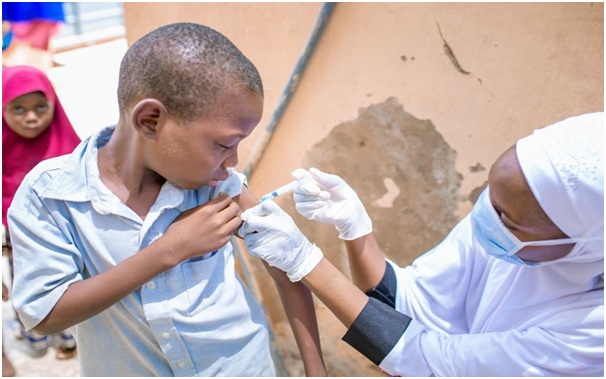Diphtheria Outbreak in Guinea (WHO)

- 18 Oct 2023
Why in the News?
The World Health Organization (WHO) has announced that Guinea's Health Ministry has officially notified them of a diphtheria outbreak.
What is Diphtheria?
- Diphtheria, an extremely contagious and infectious disease, instigates severe inflammation in the nose, throat, and trachea (windpipe).
- This ailment is caused by strains of bacteria known as Corynebacterium diphtheriae, which produce a potent toxin responsible for the onset of illness.
Causes:
- The bacterial infection spreads through various means, including respiratory droplets emitted during coughing or sneezing.
- Transmission can also occur through contact with infected open sores or ulcers. The bacteria's toxin is the primary culprit behind the illness.
Symptoms:
- Manifesting 2-5 days post-infection, symptoms of diphtheria encompass a thick, grey membrane covering the throat and tonsils, a sore throat, hoarseness, swollen glands in the neck, difficulty breathing, nasal discharge, fever, chills, and fatigue.
- If the toxin enters the bloodstream, it can lead to damage to the heart, nerves, and kidneys.
Infection and Spread:
- Diphtheria bacteria thrive on person-to-person transmission, emphasizing respiratory droplets as a common mode of contagion.
- Skin infections are possible but seldom result in severe disease.
Treatment:
- Combatting diphtheria involves a dual-pronged approach:
- Antitoxin (Anti-diphtheritic Serum): This neutralizes bacterial toxins and is specifically employed for respiratory system infections. The antitoxin acts on toxins that haven't bound with cells and tissues.
- Antibiotics (Erythromycin or Penicillin): These medications eradicate the bacteria, preventing further spread. Antibiotics are effective against both the respiratory system and skin infections caused by diphtheria.
